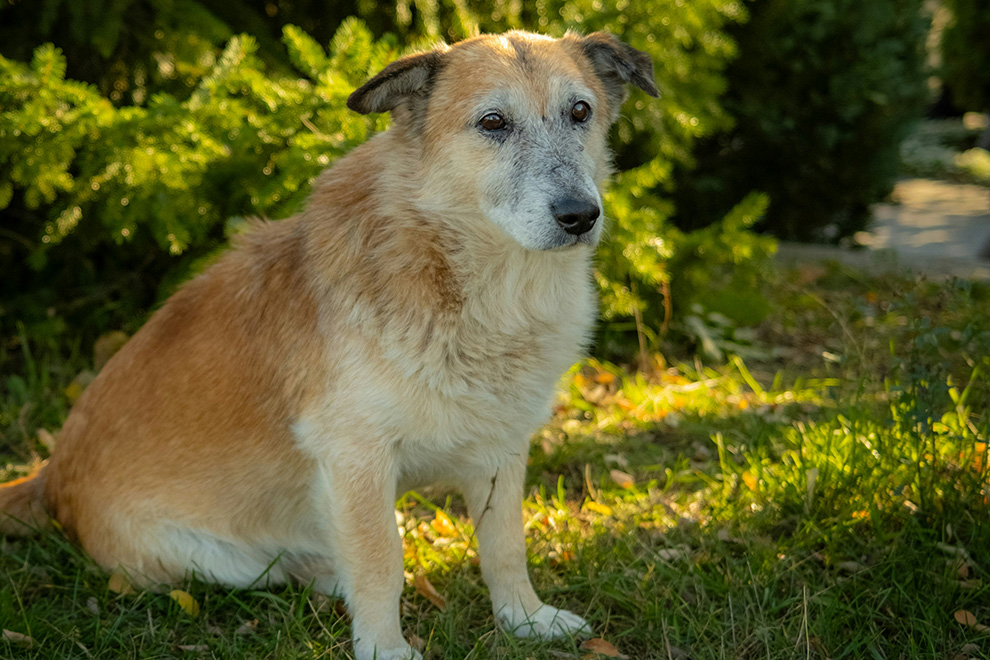I went many years without having the pleasure of naming a dog. My pets were rescues, and I always kept their original names. The names were cute and the dogs seemed comfortable with them. Turns out, if they’d had a less than positive response to their name, it might have been best to rename them.
Now, for the first time ever, I have a puppy. I named her Ashli. She is eleven months old, and she still perks up with anticipation when she hears her name.
Ashli knows that hearing her name usually means good things are coming. Through consistent and positive reinforcement, she knows that when I call her, it might be meal time, walk time, or she might get some attention or a treat. That doesn’t mean that she sometimes hears her name when she is misbehaving – she certainly does. But correction is never harsh, and she knows that she will not be harmed when responding to my call.
Dogs that cower or reluctantly respond to their names often have negative associations. Something in their past has tainted their name. Maybe their name was only used in anger. Maybe they only heard their name when they had done something wrong. Or maybe it was not so much the name, but who called their name. It feels threatening to them.
If your rescue shies away from their adoptive name, it is a good possibility they will not come when called. In an emergency situation, your call could literally mean the difference between life and death for your dog. A professional dog trainer will tell you that reliable recall (returning when called) is the most important thing a dog will learn.
That said, a dog must believe that it’s worth it to them to come when called at any time and in any situation. As my dog’s trainer says: If dogs could have a motto, it would be, What’s in it for me? Not only are you able to keep your dog safe with reliable recall, but your dog will be able to enjoy more things in life as they can be trusted to be off leash in appropriate settings.
How to Rename a Dog
Your dog doesn’t really care what their name is. Positive reinforcement will encourage your dog to respond to a word they recognize as meaningful. The key to teaching a dog a new name is to make the new name valuable to them. How is that accomplished?
To begin, say the new name to the dog. They will usually look at you simply because you spoke. If not, continue to use the new name in an upbeat tone of voice. The second the dog makes eye contact with you, reward them. As the dog continues to respond to the name, continue to lavish them with treats and praise. They will soon realize that responding to that word (their new name) means good things for them.
Keep training sessions limited to no more than ten or fifteen minutes. Any longer than that and your dog will lose focus and start ignoring you. A rescue dog that is accustomed to another name may take several days or even a couple weeks to understand completely.
When Is Renaming a Bad Idea?
Sometimes it is better to keep a rescue dog’s original name.
When a senior dog ends up at a shelter after years of living in a good, loving home, renaming is not a good idea. Maybe their owner passed away, or perhaps they were surrendered because of some tragic event. It’s not that an older dog cannot learn a new name, but their name is familiar and will probably be comforting to them as they transition to life in a new home.
Secondly, a dog that has specifically been trained to respond to its name, perhaps a service dog or other type of working dog, may get very confused if you try to change their name. That’s not to say it’s impossible, but the confusion could interfere with the dog’s ongoing responsibilities.
Lastly, an anxious dog may become even more stressed if you change their name. Rehoming is stressful for a dog. Changing their name while in the process of rehoming could add more confusion and stress. If you are insistent on changing the dog’s name, wait a few weeks until the dog has settled comfortably in your home.
Renaming your rescue could be one of the most compassionate things you do if they associate the hearing of their name with an abusive, neglectful, or hostile past. Or it might be smart to keep their name. Ultimately, it depends on the dog and their background. Whatever your rescue dog’s name, I wish you years of satisfying canine companionship.





